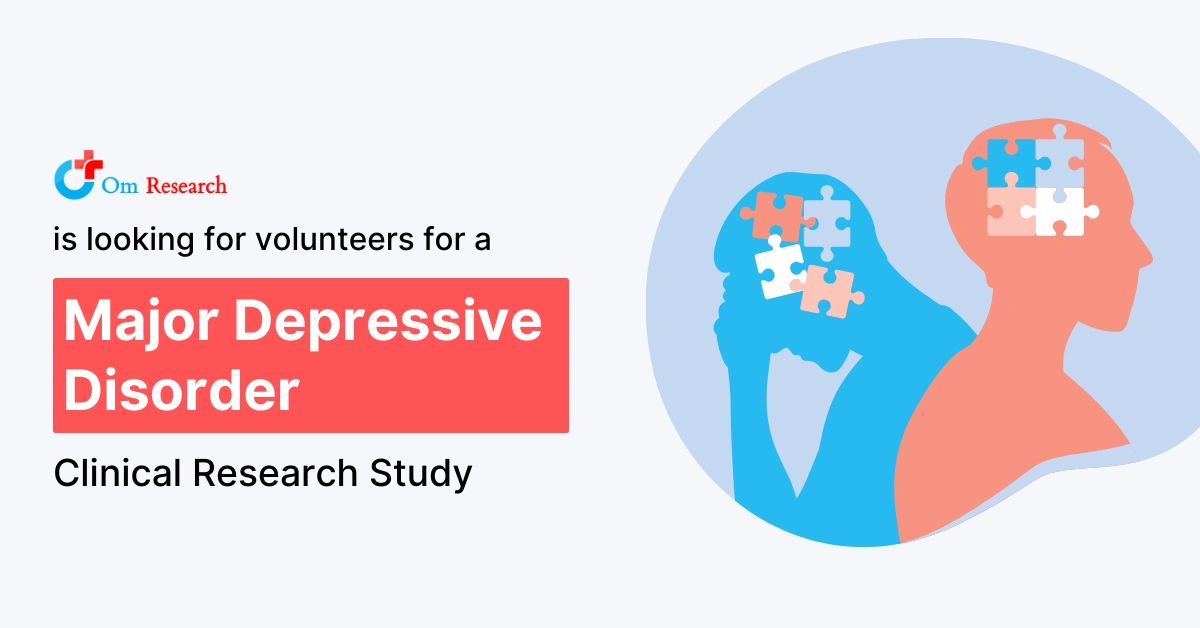Major Depressive Disorder - Lancaster
- No insurance required.
- Reimbursement may be available for time and travel.

- Sex: Male, Female
- Age: Adult (18+)
- Compensation (Up to): $900
- Location: Lancaster
Introduction
Major Depressive Disorder (MDD) is a common, yet severe mental illness that affects a person’s mood, behavior, and overall sense of well-being. According to the World Health Organization (WHO), depression is the leading cause of disability worldwide. In this descriptive study page, we will discuss the symptoms, causes, and treatment options for MDD.
Symptoms of Major Depressive Disorder
MDD is characterized by persistent feelings of sadness, hopelessness, and a loss of interest in activities that were once enjoyed. Other symptoms include changes in appetite, sleep disturbances, fatigue, difficulty concentrating, and thoughts of suicide. It is important to note that not everyone with depression experiences all of these symptoms, and the severity can vary from person to person.
Causes of Major Depressive Disorder
The exact cause of MDD is unknown, but it is believed to be a combination of genetic, environmental, and psychological factors. Some people may be more susceptible to depression due to their genetics, while others may experience depression as a result of a traumatic event or stressful life circumstance. Additionally, imbalances in neurotransmitters, such as serotonin and dopamine, may play a role in the development of depression.
Treatment Options for Major Depressive Disorder
MDD is a treatable illness, and there are several options available for those struggling with depression. The most common treatments include medication, psychotherapy, or a combination of both. Antidepressant medications work by regulating neurotransmitters in the brain, while therapy can help individuals identify and change negative thought patterns and behaviors. In severe cases, electroconvulsive therapy (ECT) may be recommended.
Conclusion
Major Depressive Disorder can be a debilitating illness, but it is important to remember that it is treatable. If you or someone you know is experiencing symptoms of depression, it is important to seek professional help as soon as possible. With the right treatment, individuals with MDD can lead happy and fulfilling lives.